As a guitarist, whether you’re a beginner or a seasoned professional, the importance of having the right guitar instrument cable cannot be overstated. It’s often the unsung hero in your rig, playing a crucial role in delivering your sound from the guitar to the amplifier. In this guide, I’ll walk you through everything you need to know about choosing the right guitar cable, focusing on sound quality, durability, and other key factors.
Why Guitar Cables Matter
How Cables Impact Sound Quality
The guitar cable you choose can significantly affect your overall sound. A high-quality cable ensures that your signal remains clear and free from interference. Conversely, a poor-quality cable can introduce noise and degrade your tone.
Common Sound Issues
Many guitarists encounter common sound issues such as signal loss and unwanted noise. Signal loss occurs when the cable is too long or of low quality, resulting in a weaker signal reaching your amp. Noise can stem from poorly shielded cables that pick up interference from other electronic devices.
Types of Guitar Cables and Their Uses
Different Types of Cables and Their Pros & Cons
When selecting a guitar cable, it’s essential to understand the different types available:
- Instrument Cables: Standard cables designed for connecting guitars to amplifiers.
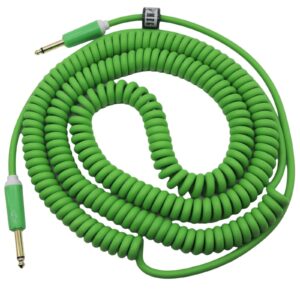
- Patch Cables: Shorter cables used for connecting effects pedals.
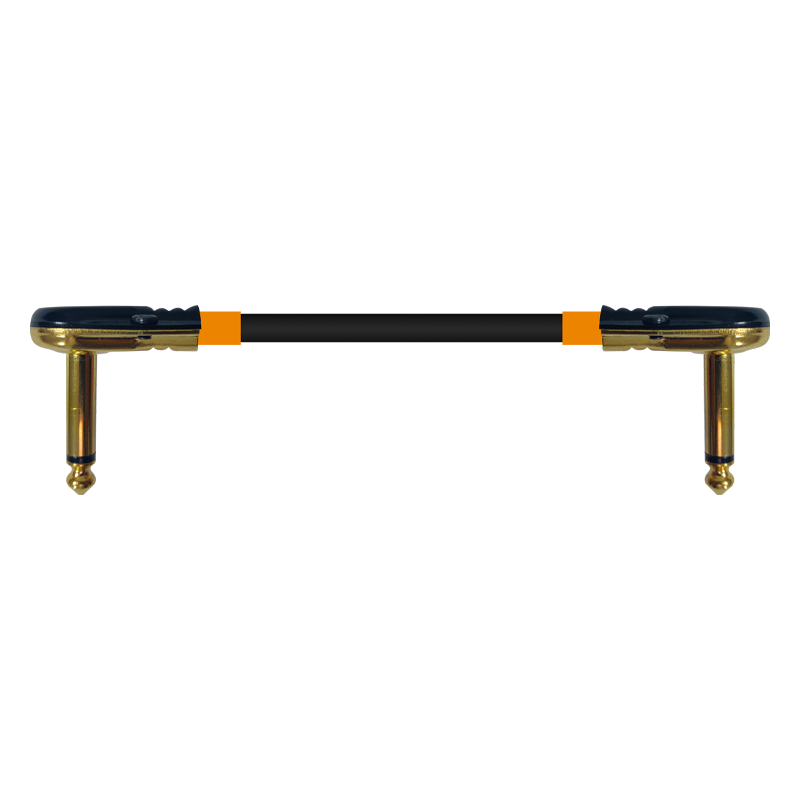
- Speaker Cables: Used to connect amplifiers to speakers and not suitable for instruments.
Short vs. Long Cables
Shorter cables (under 20 feet) generally offer better sound quality due to reduced signal loss. Long cables can introduce noise and degrade the signal, particularly if they exceed 25 feet.
Straight vs. Angled Connectors
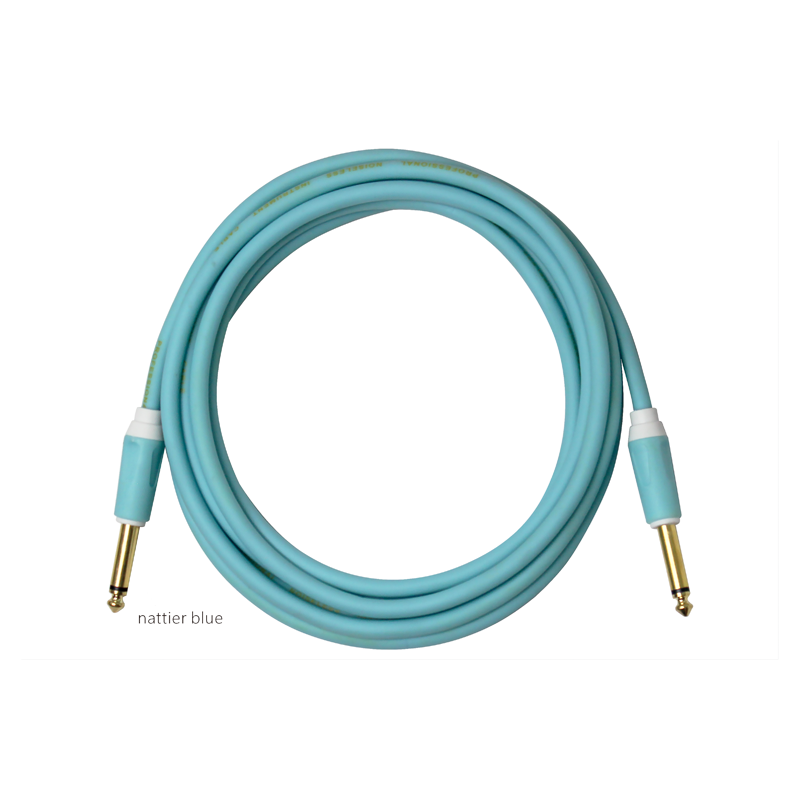
Choosing between straight and angled connectors depends on your setup.
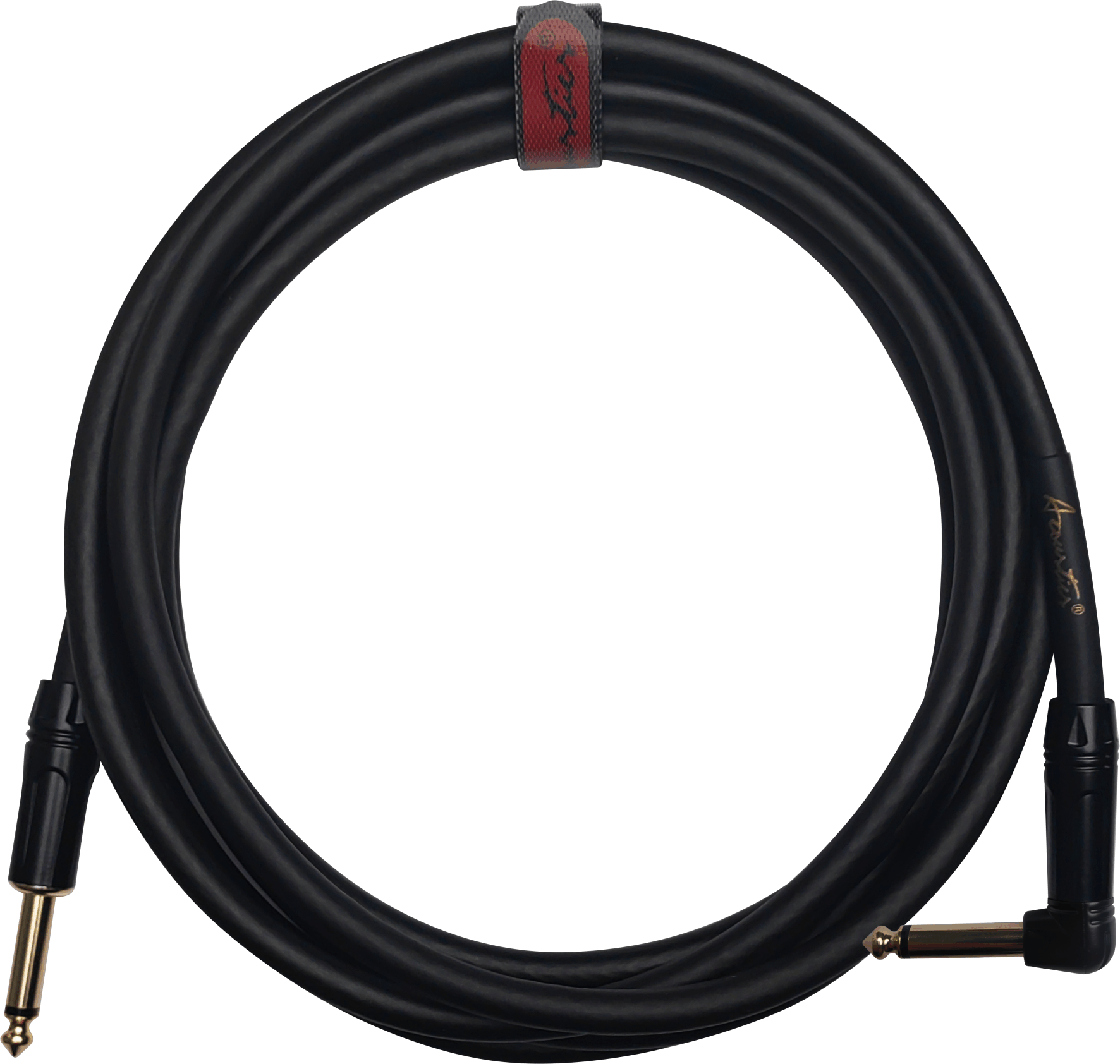 Angled connectors can be beneficial for tight spaces or when using pedalboards, while straight connectors are often easier to plug in and out.
Angled connectors can be beneficial for tight spaces or when using pedalboards, while straight connectors are often easier to plug in and out.
How Shielding Material Affects Sound Quality
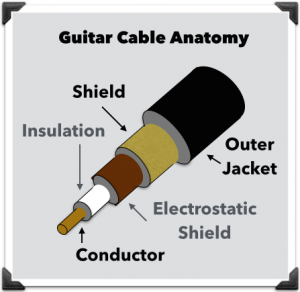
The shielding material of a guitar cable plays a vital role in protecting against electromagnetic interference:
Braided Shielding vs. Foil Shielding
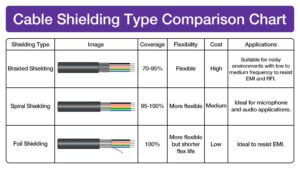
- Braided Shielding: Offers excellent durability and flexibility while providing good protection against noise.
- Foil Shielding: Generally less durable but effective in blocking interference.
Key Factors in Choosing a Guitar Cable
Sound Quality and Signal Transmission
One of the most critical aspects of any guitar cable is its ability to transmit sound accurately.
Cable Capacitance and Its Effect on Signal
Capacitance refers to how much electrical energy a cable can store. Lower capacitance cables tend to preserve high frequencies better, resulting in a clearer tone.
Durability and Lifespan
A durable cable is essential for any guitarist who frequently performs or practices. Look for cables made from robust materials that can withstand wear and tear.
Common Durable Materials
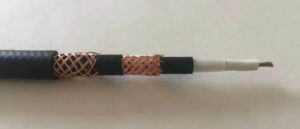
- Oxygen-Free Copper: Known for its excellent conductivity and resistance to corrosion
- Braided Nylon: Provides additional protection against physical damage.
Cable Designs That Resist Wear and Tear
Cables with reinforced connectors and strain relief features are less likely to break at vulnerable points.
Price and Brand Comparison
Guitar cables come in various price ranges, each offering different features:
Differences Among Entry-Level, Mid-Range, and High-End Options
- Entry-Level: Typically priced under $20; suitable for beginners but may lack durability.
- Mid-Range: Priced between $20-$50; offers better sound quality and durability.
- High-End: Priced over $50; designed for professional use with superior materials and performance.
Overview of Recommended Brands
Some reputable brands include:
- Bullet cables are a popular choice among musicians for their unique design and performance characteristics
- Mogami: Known for high-quality cables with excellent sound fidelity.
- Monster Cable: Offers durable options with good shielding.
- Planet Waves: Provides affordable yet reliable cables suitable for various needs.
How to Care for and Maintain Your Guitar Cable
Proper Storage Techniques
To prolong the life of your guitar cable, always store it properly. Avoid wrapping it too tightly around objects, as this can cause internal damage.
Cleaning Tips for Maintaining Sound Quality
Regularly check your cable for dirt or debris at the connectors. A simple wipe with a dry cloth can help maintain good contact points.
Frequently Asked Questions
Why Does My Cable Make Noise?
Noise can be caused by several factors, including poor shielding, damaged connectors, or even interference from nearby electronics. If you notice excessive noise, consider replacing your cable or checking connections.
How Can I Tell When My Cable Needs Replacing?
Signs that your cable may need replacing include frequent signal dropouts, unusual noises (like crackling), or physical damage such as fraying or exposed wires.
Conclusion
Choosing the right guitar instrument cable is essential for achieving optimal sound quality and ensuring durability during performances. By considering factors like sound transmission, durability, price, and brand reputation, you can make an informed decision that suits your playing style and setup. Remember that investing in a quality cable is not just about performance; it’s about enhancing your overall musical experience.
Key Takeaways for Choosing a Quality Guitar Cable
- Prioritize sound quality by selecting low-capacitance cables with good shielding.
- Consider durability features like reinforced connectors.
- Don’t shy away from investing in mid-range or high-end options if you play frequently.
- Regular maintenance will extend the life of your cable significantly.
With these insights in mind, you’re well on your way to finding the perfect guitar instrument cable that meets your needs!